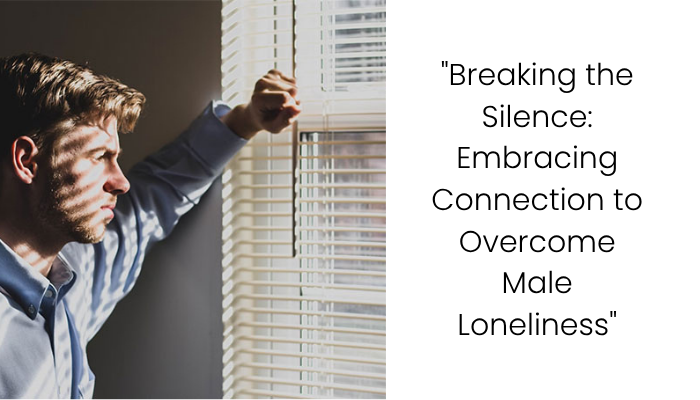The Male Loneliness Epidemic: A Self-Inflicted Isolation and the Path to Connection

In contemporary society, a significant number of men grapple with loneliness, often attributing it to external factors such as societal shifts or the perceived unavailability of romantic partners. However, a deeper examination reveals that this isolation frequently stems from self-imposed limitations. Many men focus their social interactions primarily on seeking romantic validation, neglecting broader opportunities for connection. This narrow approach not only restricts their social experiences but also exacerbates feelings of loneliness.
Advertisement – Continue Reading Below
The root of this issue lies in the reluctance to engage with others without an underlying motive. By approaching interactions with genuine curiosity and a desire to connect, men can foster meaningful relationships beyond romantic pursuits. Embracing this mindset shift is crucial in addressing the male loneliness epidemic.
Loneliness is a major problem that affects many people around the world

One anonymous internet user started an intense conversation about male loneliness by suggesting that men need to change their approach








Reframing the Male Loneliness Epidemic—From Romantic Fixation to Genuine Connection
Advertisement – Continue Reading Below

The assertion that the male loneliness epidemic is self-inflicted and solvable through a shift in social engagement strategies is both provocative and partially substantiated. While it’s true that some men may limit their social interactions to pursuits of romantic or sexual validation, the broader issue is deeply rooted in societal norms, emotional conditioning, and structural changes that have evolved over decades.
Understanding the Depth of Male Loneliness
Recent studies highlight a concerning trend: 15% of men report having no close friends, a significant increase from 3% in 1990 . This lack of close relationships is more than a personal issue; it’s a public health concern. Loneliness has been linked to increased risks of heart disease, stroke, and premature death .
Advertisement – Continue Reading Below
The Role of Societal Norms and Masculinity
Traditional masculine norms often discourage emotional expression and vulnerability. From a young age, boys are taught to be stoic, self-reliant, and to suppress emotions. This conditioning can lead to difficulties in forming deep, meaningful relationships. The stigma around male emotional expression contributes to isolation, as men may fear judgment or rejection when attempting to open up .
Beyond Romantic Pursuits: The Need for Diverse Social Connections
Advertisement – Continue Reading Below

While the pursuit of romantic relationships is natural, an overemphasis on this aspect can lead to neglecting other forms of social interaction. Focusing solely on romantic validation can result in missed opportunities for platonic friendships, community involvement, and intergenerational connections. Engaging with a diverse range of individuals can enrich one’s social life and provide a broader support network.
Practical Steps Toward Building Connections
- Join Community Groups: Participating in local clubs or organizations can provide opportunities to meet people with shared interests.
- Engage in Group Activities: Activities like group sports, book clubs, or volunteer work encourage collaboration and camaraderie.
- Attend Support Circles: Men’s talking circles offer safe spaces to discuss personal experiences and emotions, fostering deeper connections .
- Leverage Technology: Online forums and social media platforms can be starting points for building relationships, especially for those who find in-person interactions challenging.
The online post sparked a heated discussion, with many people having wildly different opinions about the entire issue





Conclusion: A Multifaceted Approach to Addressing Male Loneliness
Advertisement – Continue Reading Below
While personal initiative plays a role in combating loneliness, it’s essential to recognize the societal and cultural factors that contribute to this epidemic. Encouraging men to seek diverse social connections, challenge traditional norms, and embrace vulnerability can pave the way for more fulfilling relationships. Addressing male loneliness requires a collective effort to reshape societal expectations and create environments that support emotional well-being and connection.






